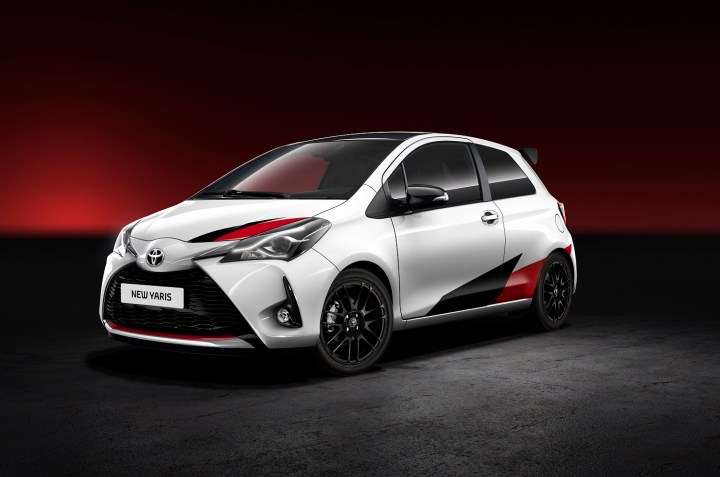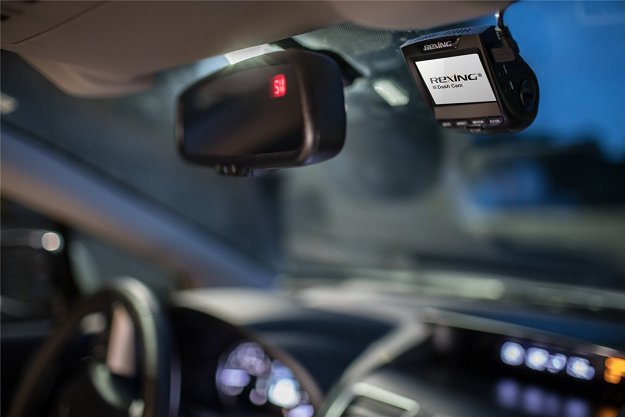
The yet-unnamed model is powered by a turbocharged four-cylinder engine that delivers over 210 horsepower. Additional technical specifications haven’t been released yet, but Toyota promises it has comprehensively upgraded the suspension components and the brakes to keep the extra power in check.
Visually, the high-performance Yaris receives a more muscular-looking front bumper with a large air dam and a strip of red trim, black mirror caps, a roof-mounted spoiler, and a new rear bumper that incorporates an air diffuser as well as a central exhaust outlet. Seventeen-inch alloy wheels wrapped by Bridgestone Potenza tires adds a finishing touch to the look.
The rally-bred model previews a face-lift for Toyota’s popular city car. It includes a revised front end with new headlights, and redesigned tail lamps that stretch into the hatch. Every member of the Yaris lineup will adopt the new look in the coming months.

The updates also include a modernized interior — likely with a new infotainment system — and “many technical modifications.” Notably, the hybrid model sold on the other side of the pond has received major upgrades. However, we’ll have to wait until the Geneva show opens its doors to find out precisely what Toyota has in store.
Toyota will show the Euro-spec version of the Yaris in Switzerland. The U.S.-spec model will likely receive the same updates in time for the 2018 model year, and it’s not too far-fetched to assume it will make its debut in April at the New York Auto Show. However, at this point it’s not clear whether the 210-horsepower model will battle against the Ford Fiesta ST on our shores.




